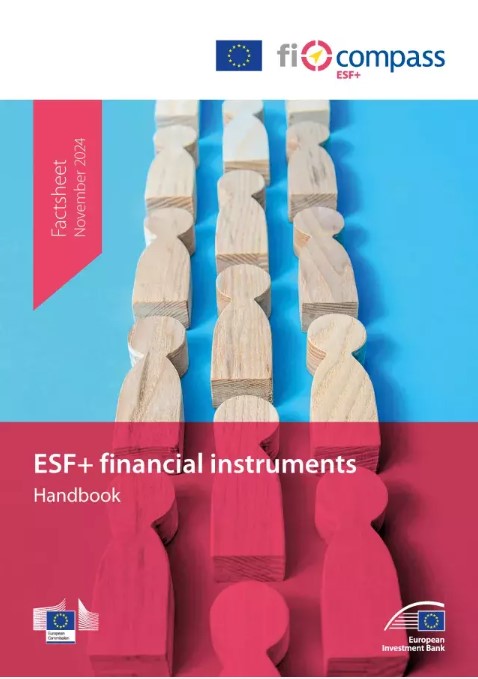Nine social finance pioneers will innovative solutions in Brussels

Microfinance Centre (MFC), in partnership with Cerise+SPTF will organize in Brussels the final meeting of Transform Together Fund (TTF) Project funded by the ESF+Programme. Nine social finance pioneers will share innovative approaches implemented to improve the skills of beneficiaries for green and digital transition.
We will discuss the implementation, challenges, achievements of the selected organizations which received grants up to 50 000 EUR to develop and test, throughout 12 months, innovative solutions to increase skills of vulnerable groups (women, small entrepreneurs, small scale farmers, migrants).
The meeting will be held on Wednesday, April 2, 2025 in Brussels, at Avenue des Arts 7/8.
If you have any questions, please contact Maria Salamon at maria@mfc.org.pl.
Agenda:
| Time | Session |
| 9:30 – 10:00 | Welcome & introduction The meeting aims to present social finance providers, that engaged in supporting digital and green transformation of their clients coming from vulnerable groups. Speakers: Ewa Bańkowska, Deputy Director, Microfinance Centre, Poland Maria Salamon, Project Coordinator, Microfinance Centre, Poland |
| 10:00 – 10:45 | Panel discussion – Improving digital and green skills of clients – selected Examples Panelists: Alexandra Grecu, Business Analyst & Marketing Specialist, Filbo, Romania Karolina Witeska-Chmielewska, Director of Rural Development and Promotion Department, Foundation for the Development of Polish Agriculture, Poland Ana Stameski, Head of Digital Channels, 3 Bank, Serbia Moderator: Fanny Le Maguet, Chief Operating Officer, Cerise+SPTF, France |
| 10:45 – 11:00 | Coffee break |
| 11:00 – 11:45 | Panel session: How to reach out to the vulnerable groups with skills improvement activities? Panelists: Gabriela Millan, International Project Officer, Adie, France Catalin Sauca, Operational Manager, FAER, Romania Microlab, Timothy Donato, Project Manager; Sara Schiano di Cola, Microlab, Italy Moderator: Cecile Lapenu, Executive Director, Cerise+SPTF, France |
| 11:45 – 12:45 | Panel session: The role of social finance providers in digital and green transformation of vulnerable groups Panelists: Martina Grigorova, Chief Executive Officer, SIS Credit, Bulgaria Emanuele Coopfin, Vice-President, Coopfin, Italy Moderator: Ewa Bańkowska, Deputy Director, Microfinance Centre, Poland |
| 12:45 – 13:00 | Summary of the day Speakers: Marco Barbero, Confeserfidi, Italy Cecile Lapenu, Executive Director, Cerise+SPTF, France |
| 13:00 – 14:00 | Lunch |
Organizations and their projects:
- Adie (France) is supporting micro entrepreneurs (25% of migrant background) in implementation of a green focus in their business strategy. The activities include design of a digital tool that would advise clients on the topic of green transition, design of a workshop “Green transition a lever and opportunity for my business”, and support through individual coaching on the topic through the network of (ca. 1000) Adie’s mentors.
- Confeserfidi (Italy) aims at testing implementation of ESG standards among the microentrepreneurs. They will offer: audits to evaluate businesses’ environmental impact and recommend sustainable alternatives, workshops on sustainable supply chain management, and create Sustainable Community Forum, which will become a platform to share green initiatives, collaborate, and seek advice.
- Coopfin (Italy) aims at helping rural women to acquire digital skills in business and provide them with business development services to set up rural cooperatives. In its project Coopfin focuses on raising awareness of the importance of digitalization to improve women’s’ work quality in the rural areas of Sardinia Island. With their activities they aim to increase number of working women. The project relies on the combination of on-line (video courses) and one to one tutoring on digital and cooperative management skills.
- Faer (Romania) is serving rural population and small farmers. They experiment with soil testing with their clients, farmers. They help them better manage fertilizers application and assess soil condition. They also organize study visits and advice on sustainable agriculture.
- FDPA (Poland) is serving rural population and small farmers: they provide well attended educational events for farmers on precise agriculture – i.e. how to use free of charge apps to better manage fertilizers application, to forecast yields, and more. They also teach their beneficiaries how to use e-signature. In the segment of microenterprises, they provide coaching for farmers.
- Microlab (Italy) works with women – existing and entrepreneurs to be, on improving their digital skills through dedicated training, mentoring and networking. The project’s objective is to foster women’s employability and facilitate self-employment, specifically by supporting the establishment of micro-enterprises through digital and sustainability training, mentoring, and financial assistance.
- Omro (Romania) is serving vulnerable groups: they developed AI powered chat bot called Hermina, that will advice people on green practices and solutions, for business or household. Hermina is up and operating in testing mode – you can test it here (you need to ask Hermina to switch to English).
- SIS Credit (Bulgaria) is developing AI powered solution mixed with face to face consultancy to provide the microentrepreneurs and social enterprises with information and know-how on green solutions for their families and businesses, accompanied with advice on available EU funded subsidies.
- 3Bank (Serbia) is working in rural areas and aims at helping the farmers apply the e-signature, which is needed to access the state subsidies and governmental services, without the need to travel to the city.
MFC’s esteemed Council members and Representatives met in Padova
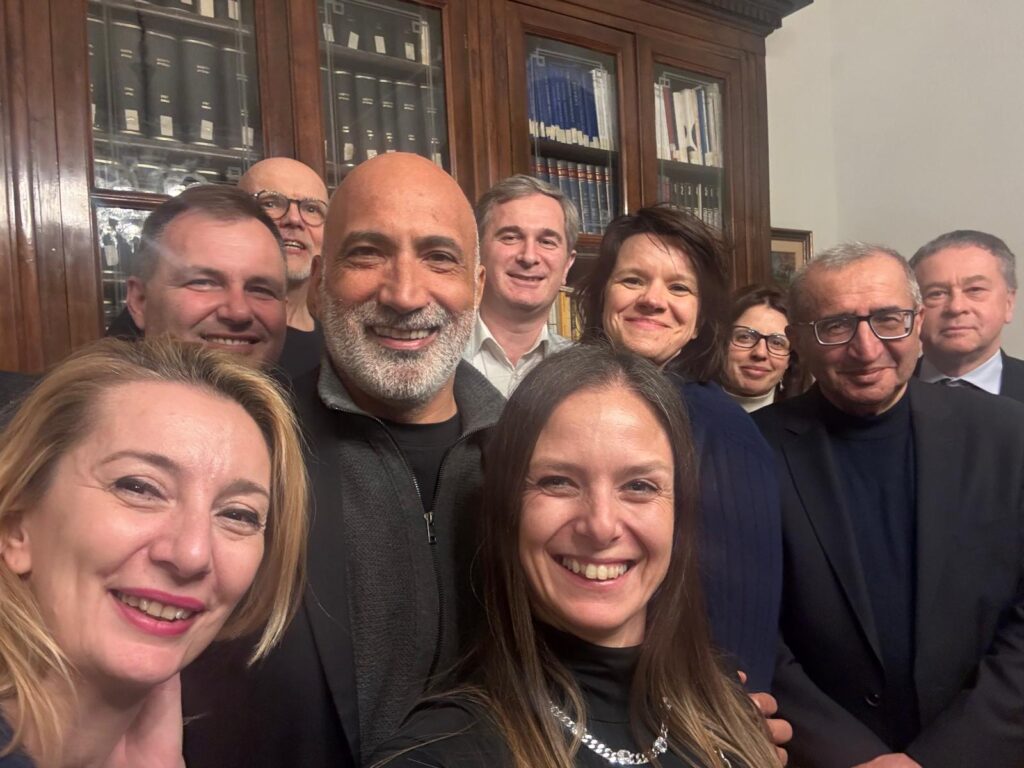
MFC’s esteemed Council members and representatives met in Padova, Italy, to shape the future of MFC network and refine our strategy beyond 2025. We remain deeply committed to supporting vulnerable communities, fostering collaboration and advancing earth-centric decision-making.
A heartfelt thank you to Banca Etica and Gabriele Giuglietti for generously hosting us once again and we look forward to continuing these important discussions at the MFC Annual Conference on May 27-29 in Tbilisi, Georgia. Registration is now open 👉 https://2025.mfc.org.pl
#Microfinance #SocialFinance #SustainableDevelopment #MFCStrategy
MFC proudly welcomes LCCU as the new member
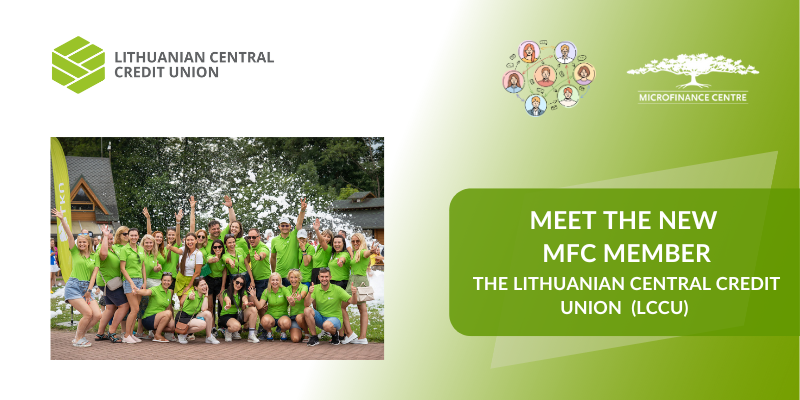
The Microfinance Centre proudly welcomes the Lithuanian Central Credit Union (Lietuvos centrinė kredito unija / LCCU) as our new member.
LCCU oversees the largest credit union group in Lithuania, uniting 44 out of 59 credit unions under the LKU Credit Union Group. The team plays a key role in developing financial products, supervising member credit unions, and ensuring efficiency, stability, and regulatory compliance.
With a strong presence across Lithuania’s cities and regions, LKU Credit Union Group provides essential financial services, adapting to the evolving needs of the market and its clients.
We look forward to working together to strengthen the microfinance sector through strategic partnerships, industry insights, and shared expertise.
Welcome to the MFC community!
#FinancialInclusion #LCCU #MFC #Collaboration #Sustainability #Microfinance
What Can Be Done To Address The Needs Of 93% Of Enterprises In EU?
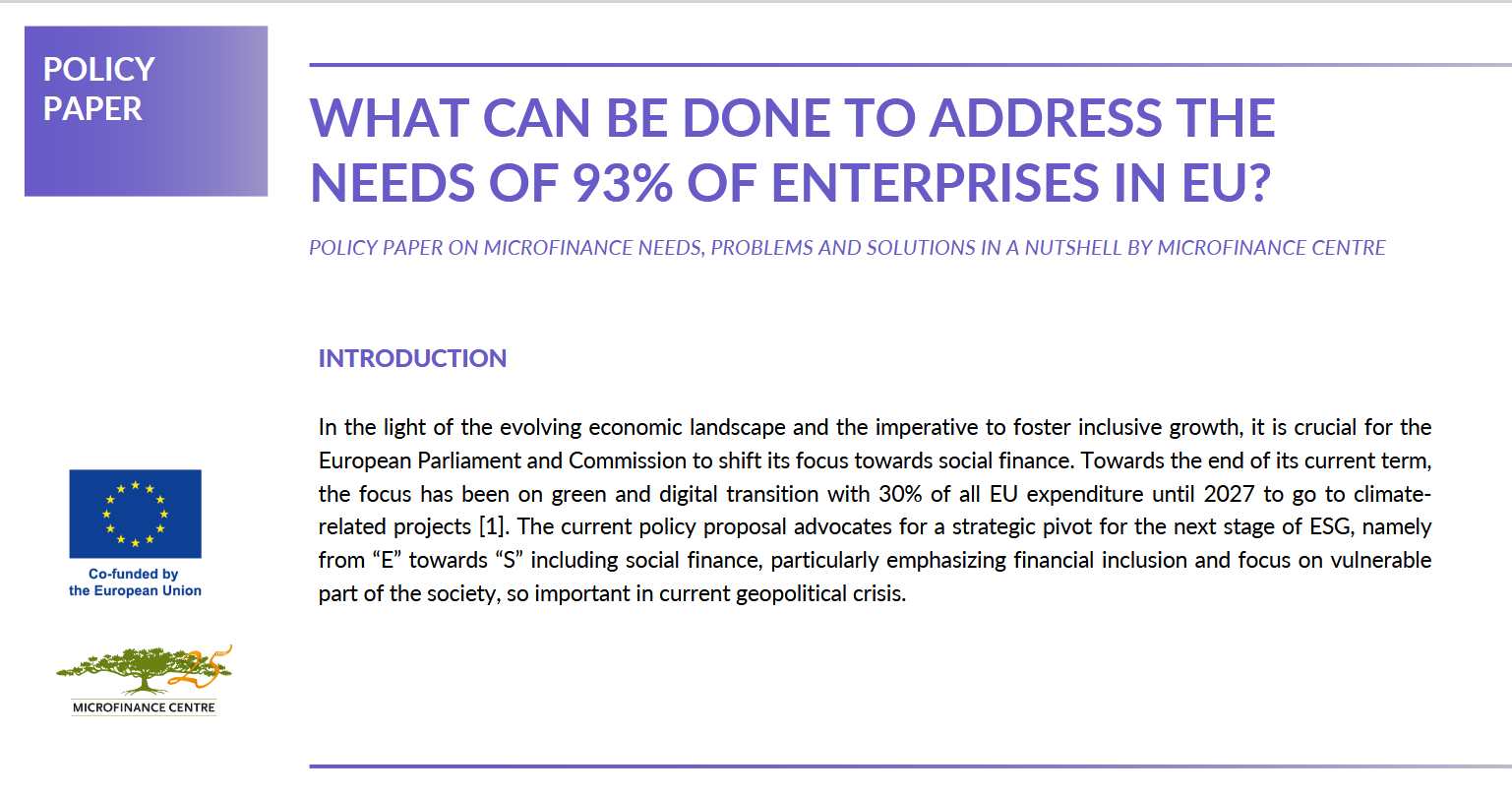
Between June and July last year, the Microfinance Centre (MFC) shared a policy paper with DG EMPL and CEB, highlighting critical funding challenges for microenterprises. This paper was developed with the collaboration and expertise exchange of members from our Partnership Action Group and provides key insights, reflections and recommendations.
Executive Summary
This policy paper calls for a strategic shift in EU policy towards social finance, with a particular focus on financial inclusion and vulnerable populations. It emphasizes the importance of microenterprises, which make up 93% of all EU companies, yet continue to face significant barriers to accessing affordable funding.
The paper identifies the main challenges hindering micro and social enterprises and proposes practical solutions aimed at:
✅ Securing dedicated funding at both EU and national levels
✅ Improving public funding instruments to enhance accessibility
✅ Enhancing coordination between EU institutions and Member States
✅ Reducing legal, financial, and regulatory barriers
Key Themes & Findings
🔹 Shifting Policy Focus
The paper urges the EU to expand its ESG priorities, shifting more focus from environmental (“E”) to social (“S”) finance, particularly in light of the current geopolitical and economic landscape.
🔹 The Role of Microenterprises
Microenterprises represent 93% of all EU businesses but generate a disproportionately small share of net turnover. They remain key employers, yet face ongoing financial barriers.
🔹 The Funding Gap
Traditional banks often overlook micro and social enterprises due to small loan sizes, lack of collateral, and high-risk weighting. The EU microfinance funding gap is estimated at €12.9 billion per year and is projected to grow.
🔹 The Need for Public Investment
Non-bank lenders are filling the gap but face higher funding costs compared to banks. Public funding participation is necessary to ensure affordable lending rates and financial inclusion.
🔹 Challenges with Current Public Finance Instruments
Existing EU funding mechanisms (InvestEU, EaSI, Progress) do not meet the full demand, and funding allocation often favors larger institutions, leaving smaller MFIs underserved.
🔹 Targeted Financial Instruments Are Lacking
Many current financial instruments serve both micro and small enterprises, creating competition between microlenders and commercial lenders, which limits funding access for microenterprises.
🔹 Barriers for Smaller MFIs
Complex application and reporting requirements favor larger MFIs, making it difficult for smaller institutions to access public funds.
🔹 Need for Better Coordination
While EU-level funding is cost-effective, national Managing Authorities have better local expertise. Lack of coordination between EU and national efforts weakens both cost and impact effectiveness.
🔹 Regulatory and Financial Barriers at the National Level
Micro and social finance institutions face legal and financial obstacles in many Member States, limiting their ability to support small businesses.
Proposed Solutions
🔹 Secure Adequate Funding for Microfinance both et EC and national levels
🔹 Dedicate Instruments just for Microenterprises
🔹 Establish a Separate Funding Pool for Smaller MFIs
🔹 Allocate a significant share of EU Shared Management Funds to microfinance and other social finance providers
🔹 Continuation and Enhancement of InvestEU Portfolio Guarantee Products
🔹 Using State Compartment to increase the InvestEU resources available for guarantees to micro and social enterprises
🔹 Provide of Low-Cost Funding Instruments
🔹 Simplify Application and Reporting Requirements
🔹 Standardize Reporting Requirements
🔹 Provide Funds for Innovation, Digitalization, and Green Transformation
Incorporate microfinance into current initiatives such as Social Climate Fund.
🔹 Enhance Coordination Between EC and Member States to allow for most effective approach for new funding opportunities
🔹 Encourage Managing Authorities to Include Microfinance in Operational Plans
🔹 Utilize Fi-Compass Platform for Advisory Services on EU shared management of financial instruments
🔹 Provide Business Development Services (BDS):
🔹 Promotion of Micro and Social Finance
Conclusion
The Microfinance Centre’s policy paper presents a compelling case for strengthening social finance in the EU, particularly in supporting micro and social enterprises. The paper outlines concrete, actionable solutions that policymakers can implement at both the EU and national levels to:
✔ Close funding gaps
✔ Simplify financial processes
✔ Enhance coordination
✔ Unlock inclusive economic growth
By addressing these barriers, the EU can better support microenterprises – ensuring job creation, financial inclusion, and long-term economic stability.
📥 Download the Full Policy Paper
SIFTA: Successful Training on Public Procurement, Competitiveness, and Social Clauses
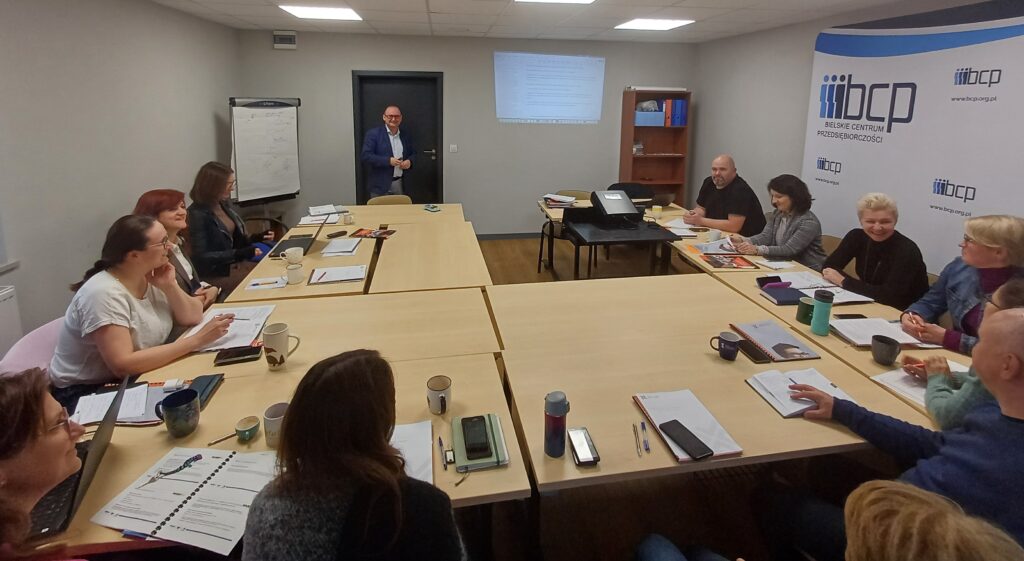
Employees of Bielskie Entrepreneurship Centre Association (BCP) recently took part in a training session on Public Procurement, Competitiveness and Social Clauses, organized by MFC. The session was held on February 14, 2025, at BCP headquarters in Bielsko-Biała and was led by Grzegorz Basiński, DBA, EMBA, an expert with over 24 years of experience in the field.
The training covered key aspects of public procurement, focusing on competitiveness, transparency, and the integration of social clauses. Topics included:
- Competitiveness Principles: Ensuring fair competition and supporting SMEs in public procurement.
- Key Concepts: Competitiveness, social clauses, and in-house procurement.
- Supporting Fair Competition: Case studies and workshops on equal treatment, transparency, and proportionality.
- Procurement Procedures: Planning, drafting specifications, and publishing notices to maximize market reach.
- Specification Conditions (SWZ): Developing SWZ to ensure fairness and provide clarifications.
- Procurement Methods: Using open tenders and basic procedures to enhance competition.
- Offer Evaluation: Maintaining transparency and incorporating social criteria.
- Social Clauses in Procurement: Applying employment clauses and social criteria.
- Public Procurement Contracts: Mandatory clauses and the impact of salary valorization.
- Best Practices: Practical workshops on drafting model clauses to promote competitiveness.
It was the latest in a series of tailored trainings. The interactive format encouraged discussions and hands-on exercises, offering practical insights for participants to apply in their work.
Thank you to Grzegorz Basiński for sharing his expertise and to all participants for their engagement. Special thanks to Agata Gliszczyńska (BCP) for her support in organizing the training.
ESF+ financial instruments. Handbook
Adie’s project: Empowering Entrepreneurs through Inclusive Green Transition
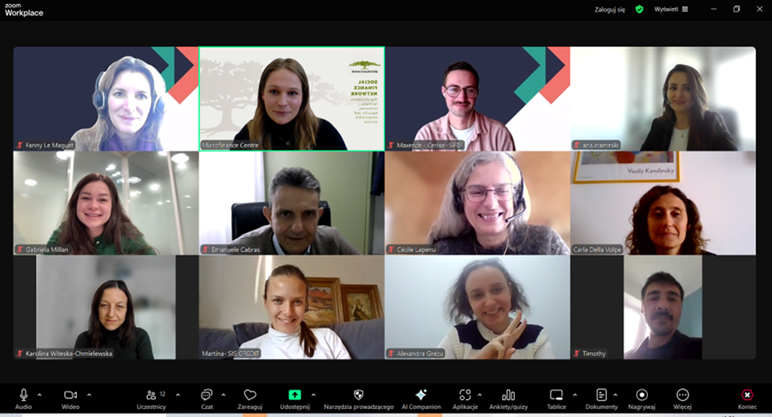
This week, Microfinance Centre and Cerise+SPTF, as part of the Transform Together Fund project, in which 9 partners are creating innovative solutions in green and digital transition for their clients, organized another peer-learning session.
This time, we had a chance to hear about Adie’s project “Empowering Entrepreneurs through Inclusive Green Transition” We saw the design of the platform, which will guide clients through green transition and help them implement green solutions in their businesses.
Thank you all and see you in a month in Brussels where we will present our great projects!
- Adie
- SIS Credit
- Filbo
- Microlab
- Coopfin
- Confeserfidi
- 3Bank
Thank you all and see you in a month in Brussels where we will present our great projects!
Learn more on Transform Together Fund Project
MFC Invites Cooperation for 2025 Policy Forum

The MFC Call for Local Partners: Host the 2025 Policy Forum in an EU Country or a non-EU country which participate in ESF+
The Microfinance Centre (MFC) invites organizations interested in co-organizing the 2025 Policy Forum in an EU country or in a non-EU country which participates in ESF+ to contact us by 12th February 2025.
Since 2022, MFC has successfully partnered with local organizations to host national policy forums and workshops promoting EU policies in emerging markets, with a focus on microfinance and social financing. As part of the Financial Inclusion for Green Inclusive Growth in Europe project, funded by a grant from the European Commission, we are seeking a local partner to collaborate on delivering the next Policy Forum in 2025.
If your organization is interested, please email Beata Biela, MFC Advocacy Manager at beata@mfc.org.pl by 12th February 2025. Be sure to include:
- Information about your organization
- Your experience in organizing policy forums
We look forward to your application!
Mikrofond: Housing and Empowerment for Roma Project
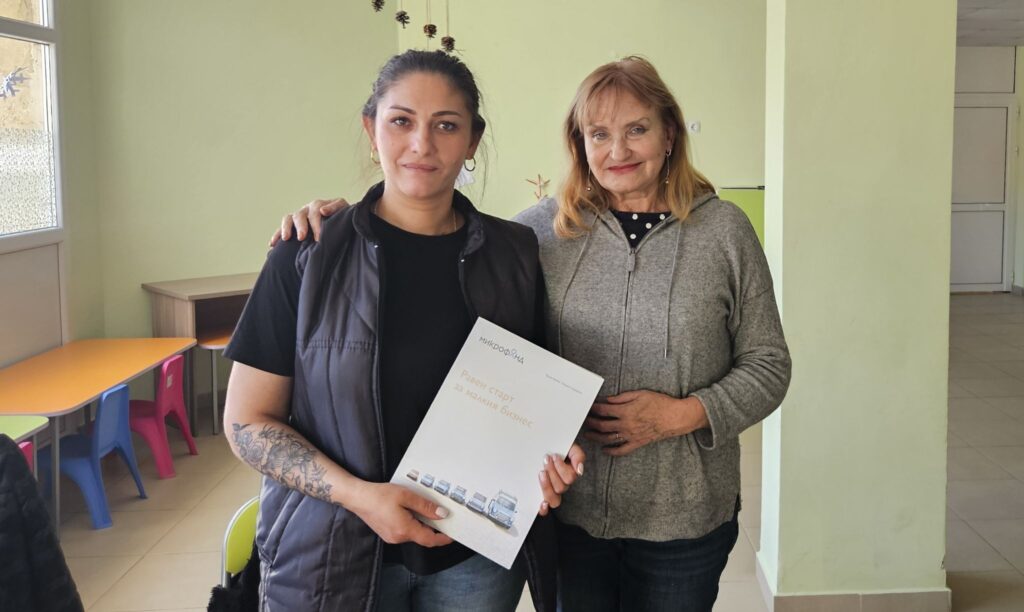
MFC’s Member – Mikrofond has taken a significant step forward by signing its first contracts under the HERO (Housing and Empowerment for Roma) Project. This EU Pilot Project is dedicated to improving the lives of marginalized Roma communities.
Funded by the European Parliament and implemented by the European Commission and the Council of Europe Development Bank (CEB), the project facilitates access to micro-loans and provides financial literacy training, construction training, employment coaching, and mentoring, resulting in better housing conditions, employment and social innovation.
ESG Transformation for Financial Service Provider

On behalf of our Member – Agents for Impact, we invite you to attend th 2nd AFI Executive Training for C-Suite Executives on ESG Transformation for Financial Service Participants taking place in Valencia on 8-9th April 2025.
MFC members are eligible for a 15% discount on the program fee (early bird) − just mention your MFC membership during registration!

